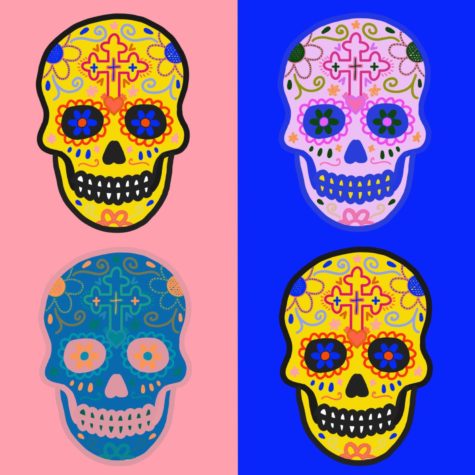OPINION | Who owns Dia de los Muertos?

Recently, a friend of mine asked me if he was allowed to celebrate Dia de los Muertos. He is not of Latin American descent but still wanted to create an ofrenda — an altar used to honor the dead. His reluctance to make one came from a fear of cultural appropriation; he didn’t want to be disrespectful of another culture’s holiday. The resulting conversation sparked another question; who isn’t allowed to celebrate Dia de los Muertos?
As the holiday originates from Mexico, the instinctive answer might be non-Mexican people. After all, it is culturally significant as a traditional way for Mexican people to celebrate the lives of those who have passed on, and most of the iconography and traditions surrounding the holiday are specifically significant to Mexican people. In the same way that family reunions are only for relatives and close family friends, one may assume that Dia de los Muertos is only for people of Mexican heritage.
However, this is not the case. While the holiday is primarily celebrated by people of Mexican descent, Dia de los Muertos is more comparable to Christmas time — there is no group of people who are not allowed to celebrate. However, if one wants to celebrate it, it is best to have some knowledge of the holiday.
Dia de los Muertos is meant to honor the dead. How one chooses to remember their deceased loved ones is up to them, and Dia de los Muertos may be how one chooses to do it. Aside from the public celebrations and parades, it is also a deeply personal ceremony. Ofrendas are often kept in one’s home, decorated with flowers and photos of loved ones. The fear of cultural appropriation here is unsubstantiated, as cultural appropriation is manifested via an inappropriate claim to something which belongs to another, typically a less-represented culture.
Actual cultural appropriation would be trying to profit off of the products of another culture’s deeply respected traditions. For example, the Walt Disney Corporation attempted to trademark the name “Dia de los Muertos” prior to releasing the film now known as “Coco.”
While no corporation has a claim to public holidays, this attempt to claim ownership over a Mexican holiday by an American entertainment corporation is the perfect example of cultural appropriation. Just as no corporation could feasibly claim exclusive ownership to Independence Day, Dia de Los Muertos is not owned by any one entity.
While that means anyone can honor their loved ones with this holiday, it also means that such celebration should respect the holiday’s origins and value in Latin American cultures. Dia de los Muertos is a celebration, and like most national celebrations, no one is barred from participating. Participants simply have to be respectful.
I cannot speak for every Latin American, but culture is meant to be shared. If you want to join in our celebration, feel free to — just do it in a respectful way.
Your donation will support the student journalists of Tulane University. Your contribution will allow us to purchase equipment and cover our annual website hosting costs.


